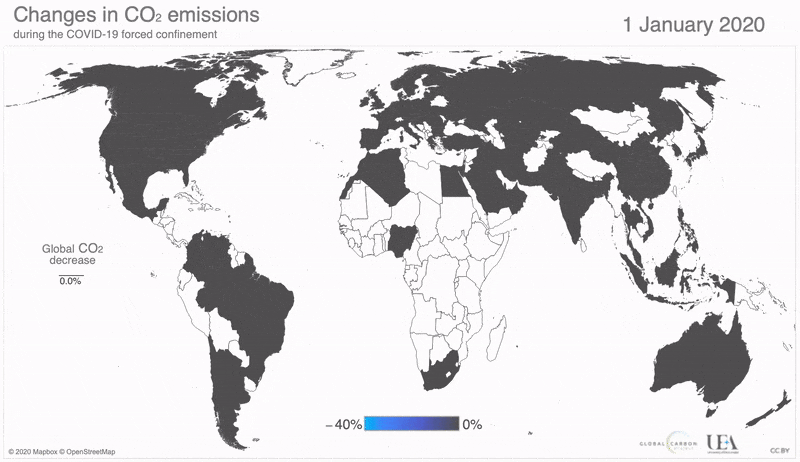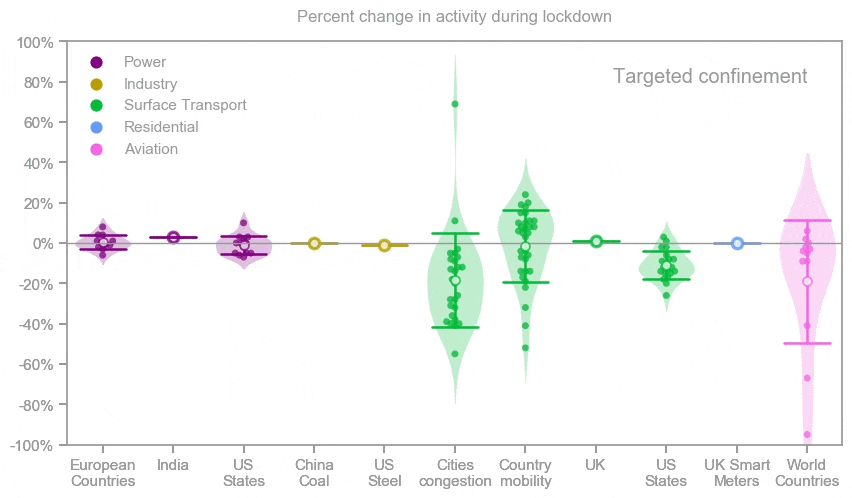According to the latest report from the Global Carbon Project, the pandemic that has hit the world has caused an unprecedented drop in emissions, presented before the celebration of the fifth anniversary of the Paris Agreements.
According to a published study, during the peak of the first wave of the pandemic, a reduction in global activity was experienced in early April, where daily global emissions fell by 17% (17 million tonnes) from daily average values in 2019 in Nature Climate Change.
According to the latest report from the Global Carbon Project, “government policies during the COVID-19 pandemic dramatically changed energy demand patterns around the world. Many international borders have been closed and populations confined to their homes, which has reduced transportation and changed consumption patterns”.
The effect of these changes in the behavior, mobility, and way of life of the whole society directly impacted the emissions generated. According to the study, ‘global daily CO2 emissions decreased by -17% (-11 to -25% to ± 1σ) in early April 2020 compared to average levels in 2019, just under half due to changes in surface transport ‘.
The data shows that what we now can completely change the course of the planet. New mobility patterns as a result of restrictions have led to less vehicle use. Our way of living and working has been profoundly affected.
“At its peak, emissions in each country decreased by -26% on average.”
From Bogotá to Berlin, the number of people who adopted the bicycle, electric scooter, or mobility in public spaces skyrocketed during the pandemic. Some cities have been creative and have expanded bike paths and public areas to accommodate all cyclists and new pedestrians.

The total impact of annual emissions in 2020 depends, to a large extent, on the duration of the blockade with an estimate, according to the report, ‘drops -4% (-2 to -7%) if pre-pandemic conditions return in the middle of September. June, and a high estimate of -7% (–3 to –13%) if some restrictions remain around the world until the end of 2020.’
The measurement carried out in different countries shows emission reductions of -12% in the United States, -11% in the European Union, -13% in the United Kingdom, -9% in India, and only -1.7% in China. The latter country suffered the most significant restrictions in early 2020, the shortest of all the most industrialized nations, allowing its industry to recover more quickly.

This annual drop is comparable to the number of yearly emission reductions needed, year after year, over decades to achieve the climate goals of the UN Paris Agreement.
From Stanford University and president of the Global Carbon Project, Professor Rob Jackson, co-author of the analysis, believes that “the drop in emissions is substantial, but illustrates the challenge of meeting our climate commitments in Paris. We need systemic change through green energy and electric cars, not temporary reductions in forced behavior.”

